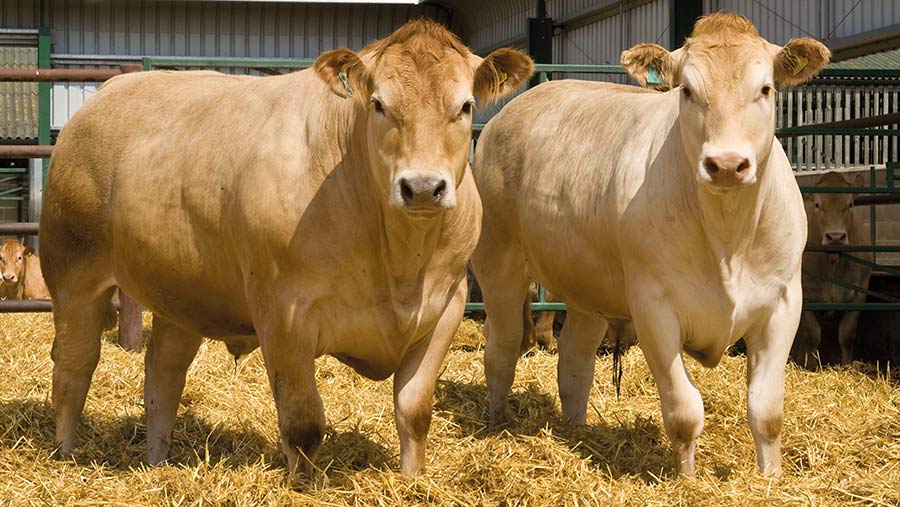Store values up with prime cattle numbers back 6%
 © Tim Scrivener
© Tim Scrivener Numbers have tightened at beef saleyards across the country, stoking an already red-hot summer store cattle trade.
Many English finishers have been quoted £4.05-£4.10/kg from deadweight beef buyers. Likewise, prime market averages lifted again last week to 230p/kg (+23p/kg on the year).
Defra’s June slaughter figures were back 6.8% on the year. Furthermore, prime markets have sold 5.8% fewer cattle this year to date.
Processors are having an even harder time securing cattle. AHDB’s deadweight survey shows that steer throughputs have been back 6.2%-14% each week since June.
Reports of staff shortages due to Covid-19 tightening beef supplies mean that, while grazing cattle are in demand due to plentiful grass, short-keep cattle prices are through the roof.
See also: Record UK beef prices lead to Irish cattle imports
Ruthin
Finishers competed for just 53 store cattle at Ruthin on Thursday (23 July) as farmers rallied to get the harvest in across North Wales.
The entry of mostly forward cattle (18-22 months) were mainly dairy-bred animals, with all types meeting keen interest and some heifers bought for bulling.
Older stores have regularly made £1,300-£1,400 a head and entries of 14-month-old Angus stores had hit £800-£1,000 in recent weeks.
Store cattle auctioneer Richard Lloyd of Ruthin Farmers Auction Mart predicted a bigger entry for the next sale (30 July).
Numbers, normally minimal in mid-July due to the Royal Welsh Show, are tipped to lift to 50-70 head a week, and then up to 250-300 head in the autumn, said Mr Lloyd.
He said yarding cattle had held value well, but grazing cattle took a slight knock when processor prices fell in June.
British Blue cross animals for summer grazing saw the most resistance. Although sought after, Mr Lloyd said buyers find them harder to keep condition on and grow frame.
Monmouthshire
Monmouthshire’s recent sales had seen forward stores level at 222-238p/kg for steers, compared to 191-201p/kg in July last year. Heifers were also 30p/kg up on the year at 222p/kg.
Stephen Williams, of Williams Associates, who sells cattle on a freelance basis at the market, said Blue cross dairy-bred bullocks had topped at £1,320 for an entry weighing 590kg at 23 months, and Friesian bullocks had made £1,000.
Younger grazing cattle – if they could be found – had made £1,150 a head at 16-18 months.
“Buyers will give £1,200 for R-grade bullocks all day long at 500kg – the same money for heifers too,” Mr Williams told Farmers Weekly.
He added that machinery, timber, wire and all other farm costs seemed to be rising weekly. “Everything is dearer and livestock prices must keep pace.”
